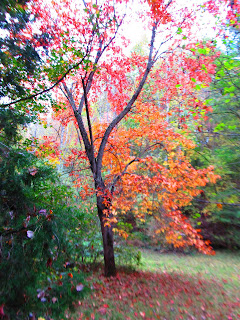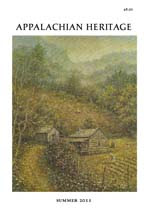On the Saturday of the 100,000 Poets for Change Day, which also happened to be Western Carolina University's Mountain Heritage Day, I sent my poem "Mountain Time" to our NC legislatures and to our Jackson County Commissioners. Poets don't really expect to get responses to their work from legislators and other busy people in government.
But lo and behold, I received from Commissioner Doug Cody a response about living here in these mountains. Turns out we have friends in common and a common interest in preserving our heritage.
A few weeks later, I emailed him my poem "Timberline," and just yesterday, he emailed this sensitive, moving response. He has given me permission to share his reply, which I do gladly, along with the hope that we have more mountain men like Mr. Cody willing to take care of the "mother trees" that keep our forests alive.
"A beautiful but sad description of the slow, agonizing demise of that magnificent sentinal of the forest, the mighty Hemlock. It is so degrading for this beautiful giant to be felled by a cotton-draped gnat. I am doing my best to save several of the larger specimens on my property, so far with great success. One 75 foot tall specimen I call "the Mother Tree" graces the entrance to my driveway. I named her that because she is loaded with cones every year and over the years she has given birth to literally hundreds of offspring. Unfortunately, I have been unable to save most of little ones but "Mother Tree" is alive and well. I will attach a photo of her with one of her cones still attached. When doing my chores I purposely caress her branches just to enjoy that subtle Hemlock fragrance. As long as I am able, "Mother Tree's" circle of life will not be broken. "
I told Mr. Cody that I had a Mother Tree, too, down in SW Georgia where I grew up, an old oak
I sat under many an afternoon.
Here's a poem by my friend and hair stylist Sara Bishop Morgan, who loves trees, too. Sara was one year ahead of my daughter at Smoky Mountain High School, so I've kept an eye on her ever since the two of them were in Girl Scouts together. Her son Elijah is now a Boy Scout! His poem "The Tree Seed of Love" was featured here in August.
shuffling through the numerous lists I make to try to bring my life into some sort of order, searching yet again for my bifocals, my car keys, my checkbook.
TREE SEE
There are things on which I ponder
a bird chatterings, speaking of the coming spring.
Thoughts of what the trees whisper amongst each other,
as the new growth thrives up and under.
Magical winds doing their dances all just to ruffle
the leafy canopy in search of the greenest shade of green
Might I, if hushed I remain, hear their songs to God they sing?
All these I wonder while standing in the presence of these giants.
I feel so small looking upward through their glory
And for just a time, the swaying of their branches have staved off my world's
worry, their earthy scent filling my nostrils,
I remembered to breathe, and tree see.
 |
| Sara Bishop Morgan |












